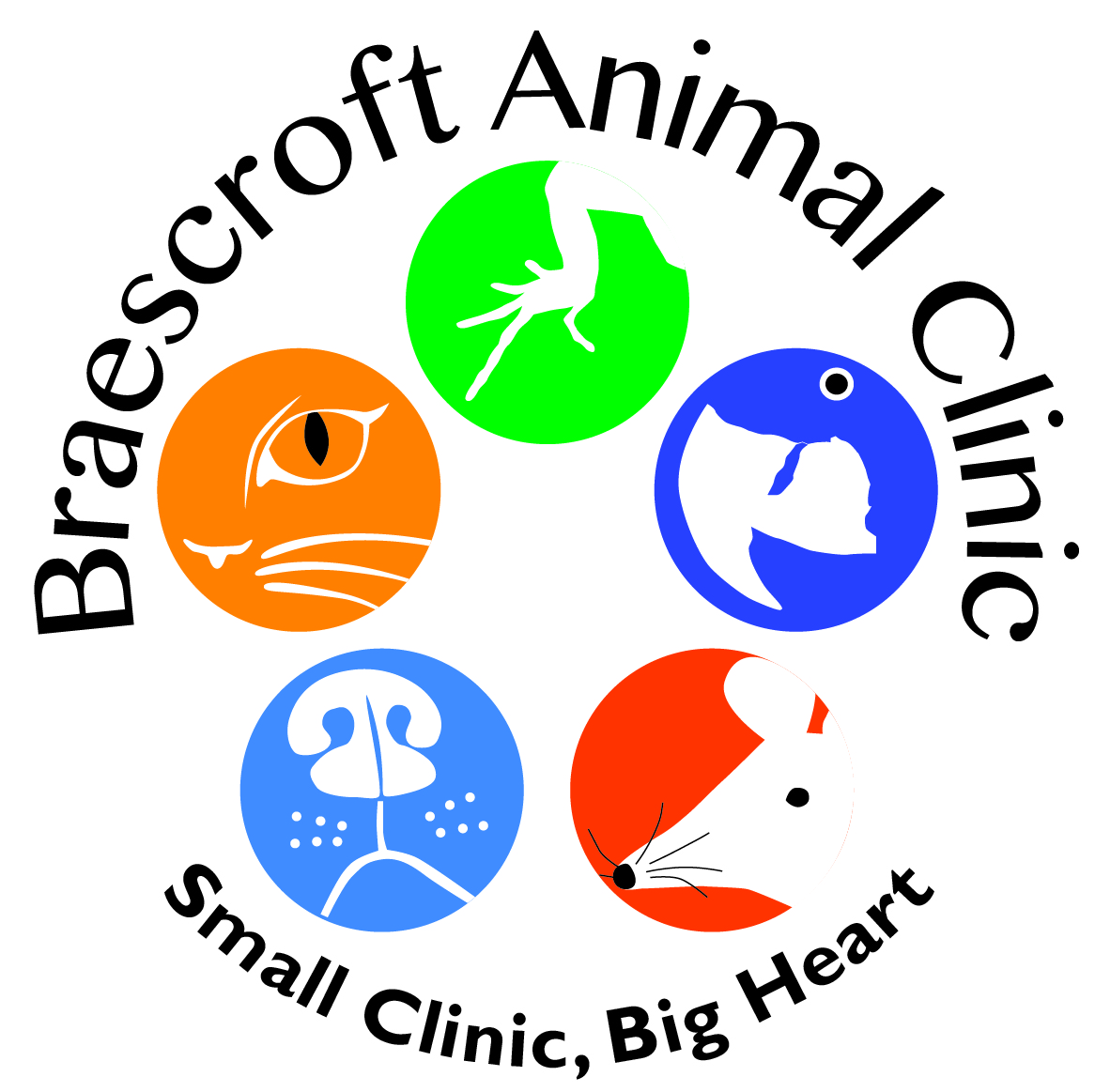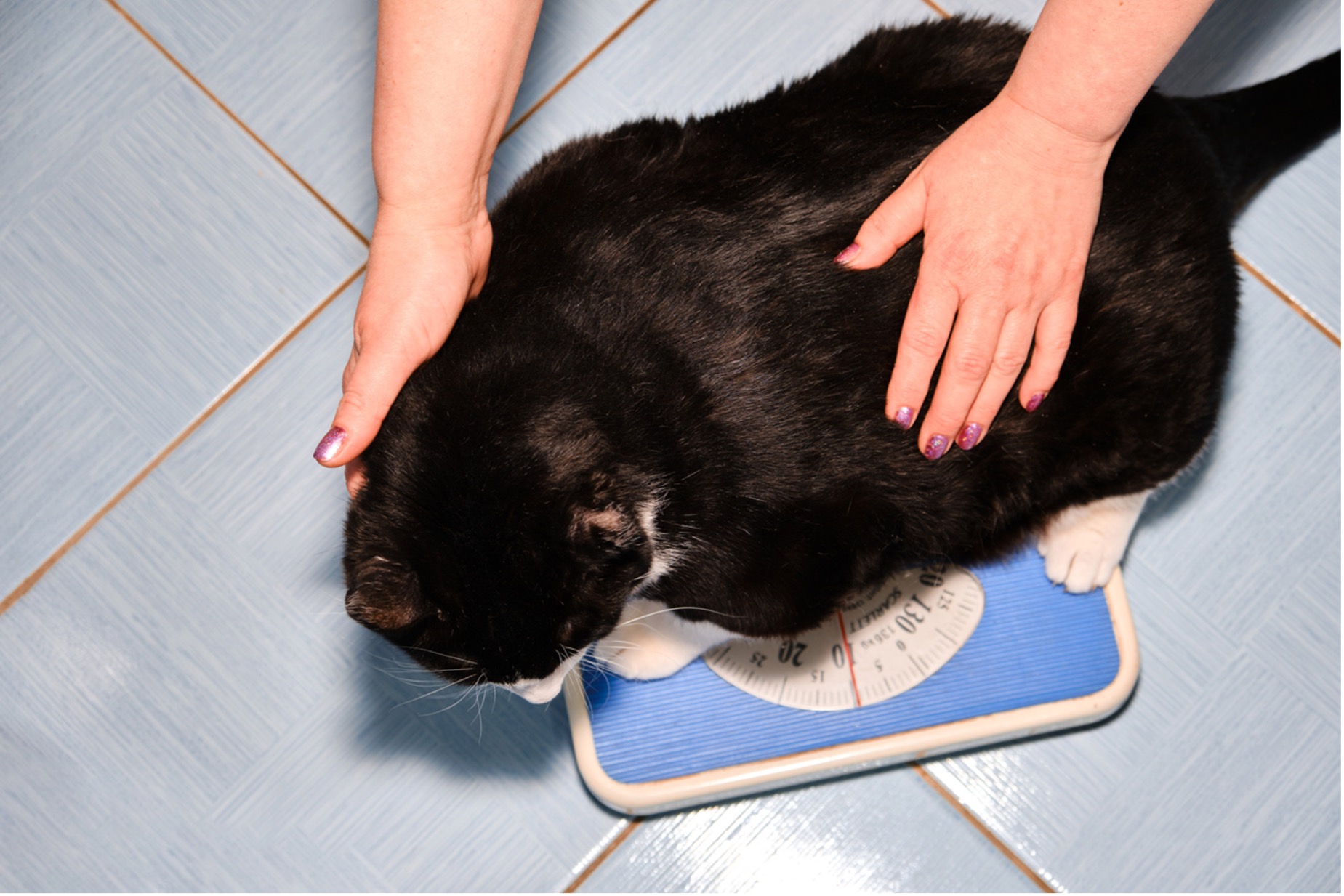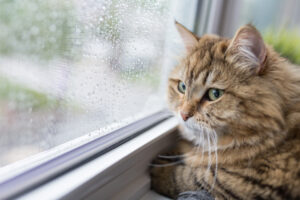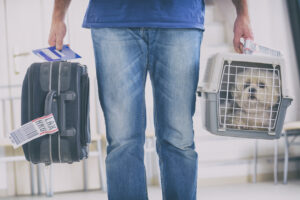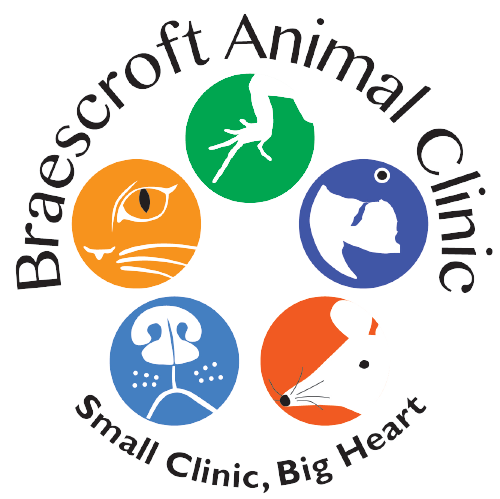Are you concerned about your furry friend’s weight? If you are, you are not alone. Pet obesity is a growing problem that can seriously affect your pet’s health and longevity. A study conducted by The Association for Pet Obesity Prevention in 2022 classified 59% of dogs and 61% of cats as overweight or obese. These alarming statistics highlight the need to educate pet owners on the consequences of having an overweight or obese pet.
Pet obesity not only affects your pet’s physical well-being, but it can also lead to a variety of medical conditions such as diabetes, heart disease, and joint problems. These health issues can significantly impact your pet’s quality of life and result in costly veterinary bills.
Maintaining a healthy weight for your pet is not only about their appearance but also about their overall well-being. It’s essential to provide them with a balanced diet and regular exercise to prevent obesity and maintain optimal health. With proper care and attention, you can promote longevity and ensure your beloved companion stays by your side for years to come.
So, let’s delve deeper into the impact of pet obesity on longevity and understand why a healthy weight matters.
The Impact of Excess Weight on a Pet’s Health
One of the most common issues with obesity is joint problems, especially in older pets. Additional weight stresses the joints, leading to arthritis and hip dysplasia, resulting in pain, decreased mobility, and a reduced ability to participate in physical activities.
Obesity also increases the risk of developing diabetes in pets. Like humans, excess weight can interfere with the body’s ability to regulate blood sugar levels. This problem puts pets at a higher risk of developing insulin resistance and, ultimately, diabetes. Diabetes can lead to a range of complications, including organ damage, decreased immune response, and death.
Heart diseases are another concern for overweight pets. The heart has to work harder to pump blood throughout the body, leading to an increased risk of high blood pressure, heart failure, and other cardiovascular issues. These conditions can significantly impact a pet’s overall health and well-being.
Common Causes of Pet Obesity
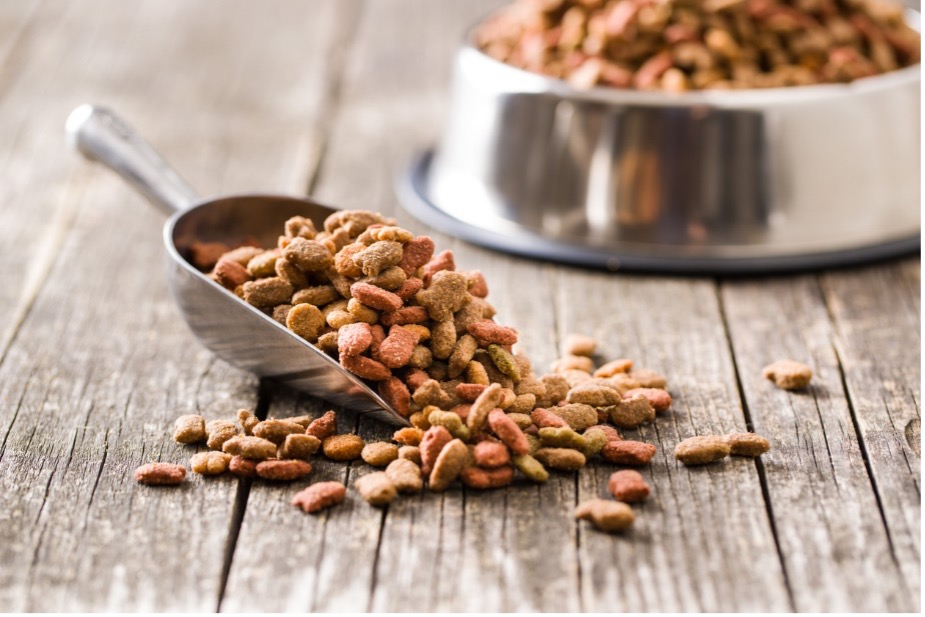
Poor Feeding Habits
The most prominent cause of obesity in pets is overfeeding. This problem can result from one or more of the following poor feeding habits:
- Not accurately measuring your pet’s food portions.
- Having a random feeding schedule.
- Put out dry kibble and letting your pet munch throughout the day.
- Feeding table scraps.
- Giving your pet too many treats.
Obesity is a common problem among pets, as it can be easy to over-feed a pet that knows how to beg. But being overweight is a serious problem for animals and can cause real health problems as they get older. For this reason, developing healthy feeding habits with your pets is essential.
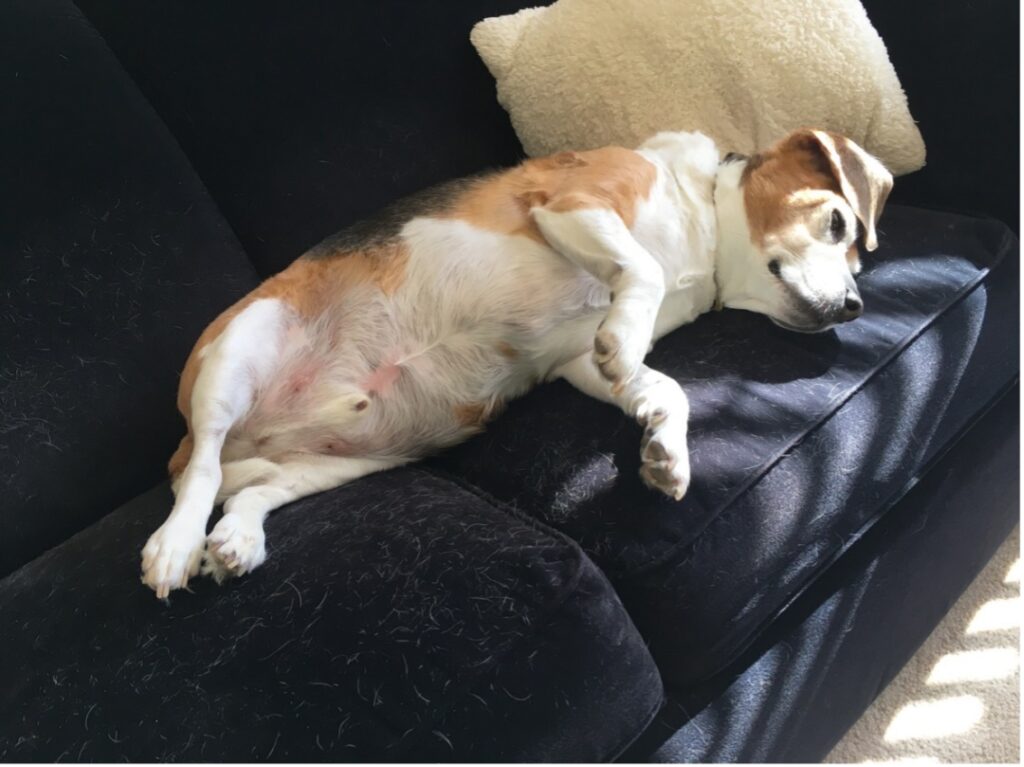
Lack of Exercise
Lack of exercise is another common cause of pet obesity. Pets require regular physical activity to maintain a healthy weight. Without enough exercise, pets can quickly become sedentary and gain excess weight. Pet owners must prioritize daily exercise for their furry friends to prevent obesity.
Certain breeds are also more prone to obesity than others. For example, Labrador Retrievers and Beagles are genetically predisposed to overeating and weight gain. Main Coon cats, Ragamuffins, Scottish Folds, and Siamese, are prone to overweight problems. Some exotic pets, such as rabbits, hamsters, Guinea pigs, and rats, are prone to weight problems. Pet owners of these breeds should be especially vigilant in managing their pets’ weight to prevent obesity-related health issues.
Recognizing the Signs of Obesity in Pets
Recognizing whether your pet is overweight or obese is important in addressing the issue. There are ways you can assess your pet at home:
Visual Assessment: Take a step back and observe your pet’s body shape. You should be able to see a distinct waistline behind your pet’s ribcage. If your pet’s body appears round or rectangular without a noticeable waist, your pet may be carrying excess weight.
Note: You should be able to feel your pets’ ribs without having to press firmly. If you cannot easily feel their ribs, there is a good chance your pet is overweight.
Weight Check: Use a pet scale or bring your pet to Braescroft Animal Clinic to determine its weight. You can then compare it to the ideal weight range for their breed and size. If your pet’s weight exceeds the recommended range, they are likely overweight.
Grooming Difficulty: If you notice that it’s becoming increasingly challenging for your pet to groom themselves, especially reaching certain areas around the tail and lower back, it could be a sign of obesity.
Get an Accurate Weight at Braescroft Animal Clinic: While the above signs can help you see if your pet is overweight or obese, consulting with Dr. Lowenstein is the best way. She can determine their Body Condition Score (BCS). Based on this assessment, she can recommend an appropriate weight loss plan.
How to Prevent and Manage Pet Obesity
Preventing and managing pet obesity requires both dietary adjustments and regular exercise. Here are some strategies to help keep your furry friend at a healthy weight:
Healthy diet and nutrition for pets
Feeding your pet a balanced and nutritious diet is crucial for maintaining a healthy weight. Pets’ nutritional needs change as they enter different stages of their lives. You can get our top tips from our blog: How to Select the Right Pet Foods for Dogs, Cats, and Exotic Pets.
The best way to ensure your pet’s diet meets their needs is to consult with us about a diet specifically for their age, size, breed, and lifestyle.
In addition to giving your pet a nutritious diet, here are some healthy habits to set:
- Set a feeding schedule and avoid free feeding.
- Measure out their portions to prevent overeating.
- Calculate treats into their daily calorie requirement. Treats should be at most 10% of your pet’s daily caloric intake.
- Do not give in to the temptation to feed your pet food from your plate.
The role of exercise in maintaining a healthy weight
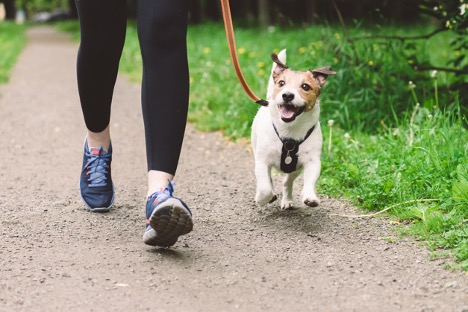
Regular exercise is essential for keeping pets at a healthy weight. Take your dog for daily walks, engage in play sessions, and consider activities such as agility training or swimming in the warmer months to keep them active.
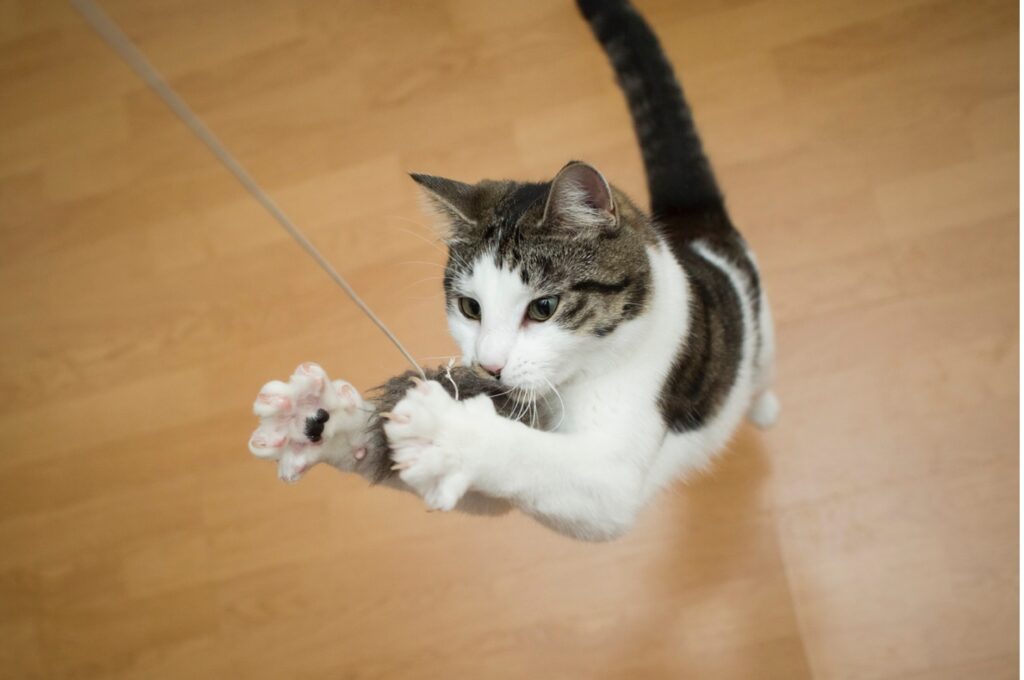
Cats also benefit from regular exercise. Please provide them with toys that encourage movement and play to keep them physically engaged, such as cat wands or laser pointers. Cat trees and scratching posts promote climbing and stretching.
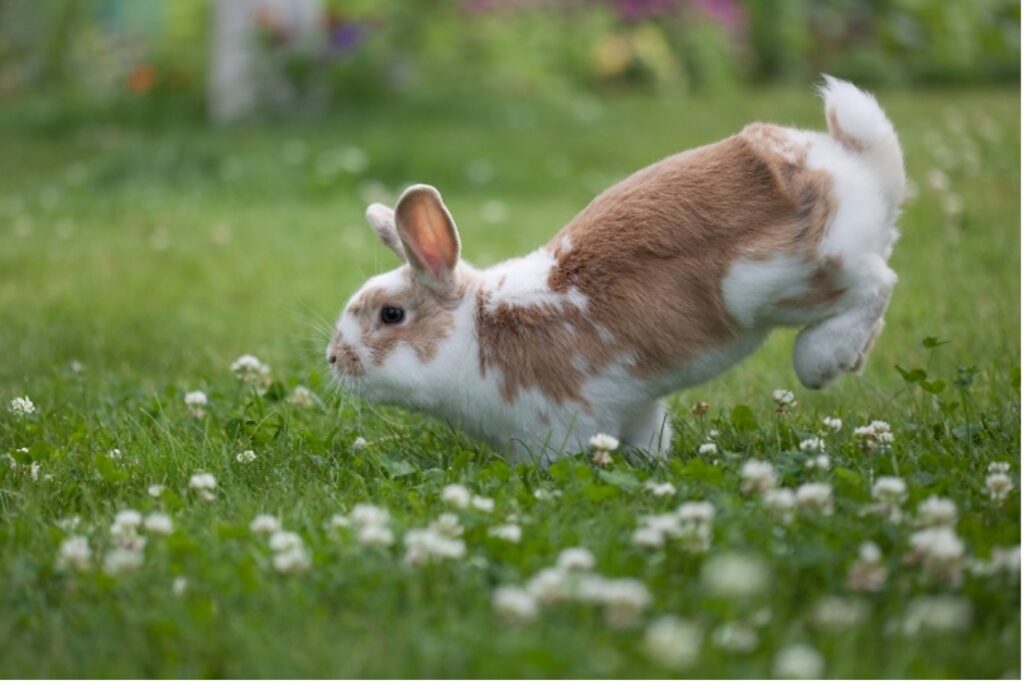
And just like dogs and cats, exotic pets need daily exercise, too! If you have questions about how much exercise your exotic pet needs, please ask to consult with Dr. Lowenstein, who will be happy to go over your pet’s exercise needs with you.
Seeking Professional Help for Your Pet’s Weight Management
If your pet is already overweight or obese, seeking professional help to develop a weight management plan is important. A veterinarian can assess your pet’s current condition and provide guidance on dietary adjustments and exercise routines.
In some cases, we may recommend a prescription weight-loss diet for your pet. These diets are specifically formulated to promote weight loss while ensuring that your pet receives the necessary nutrients. Your veterinarian may also recommend regular weigh-ins to track your pet’s progress and make any necessary adjustments to their weight management plan.
Weight loss should be gradual and steady. Rapid weight loss can be detrimental to your pet’s health and must be avoided.
Conclusion: The Importance of Addressing Pet Obesity
Maintaining a healthy weight for your pet is not always a straightforward task. It requires a comprehensive approach that includes proper nutrition, portion control, and regular monitoring. Seeking veterinary guidance from Braescroft Animal Clinic is crucial in managing your pet’s weight effectively.
We can assess your pet’s current weight and body condition and provide you with personalized recommendations. We may suggest a specific diet plan, including the type and amount of food suitable for your pet’s needs. We can also guide you on portion sizes, feeding schedules, and treats to avoid excessive calorie intake.
Regular checkups are essential in monitoring your pet’s weight and overall health.
At your pet’s checkup, we can identify any underlying medical conditions that may contribute to weight gain or hinder weight loss. We also want to monitor your pet’s weight, ensuring that your pet stays a healthy weight. It is much easier to start a diet when a pet is a pound overweight instead of fifteen! Our veterinarian will also look for any potential problems. Our goal is to catch any problems before they become major ones. The sooner that we are able to catch a problem, the easier it is to treat it, and the more likely that your pet will make a full recovery!
We are currently offering $15 off The New Client Exam.
Contact us now. With guidance from Dr. Lisa Lowenstein and your dedication to your pet’s home care program, we can combat pet obesity! The new year is a great time to start!
Happy New Year!
Your Caring Team
Braescroft Animal Clinic
